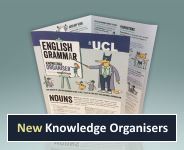Formal and informal: Activity
working with register variation
The concept of register is about the idea of appropriate language, which is shaped by context. Thinking about context is a fundamental part of language analysis, and is a useful 'way in' to exploring language choices and meanings.
Being able to vary your register is an important skill.
In this activity we will start by looking at two real letters. One of them is a personal letter and the other a business letter. You can download them, or read through them here:
Welcome back!

Englicious is totally free for everyone to use!
But you will have to log in to see our library of teaching resources.
If you don’t have an account, that’s perfectly OK. You can register (for free).
It only takes a minute or two.
»
- Printer-friendly version
- Log in to view or leave comments

